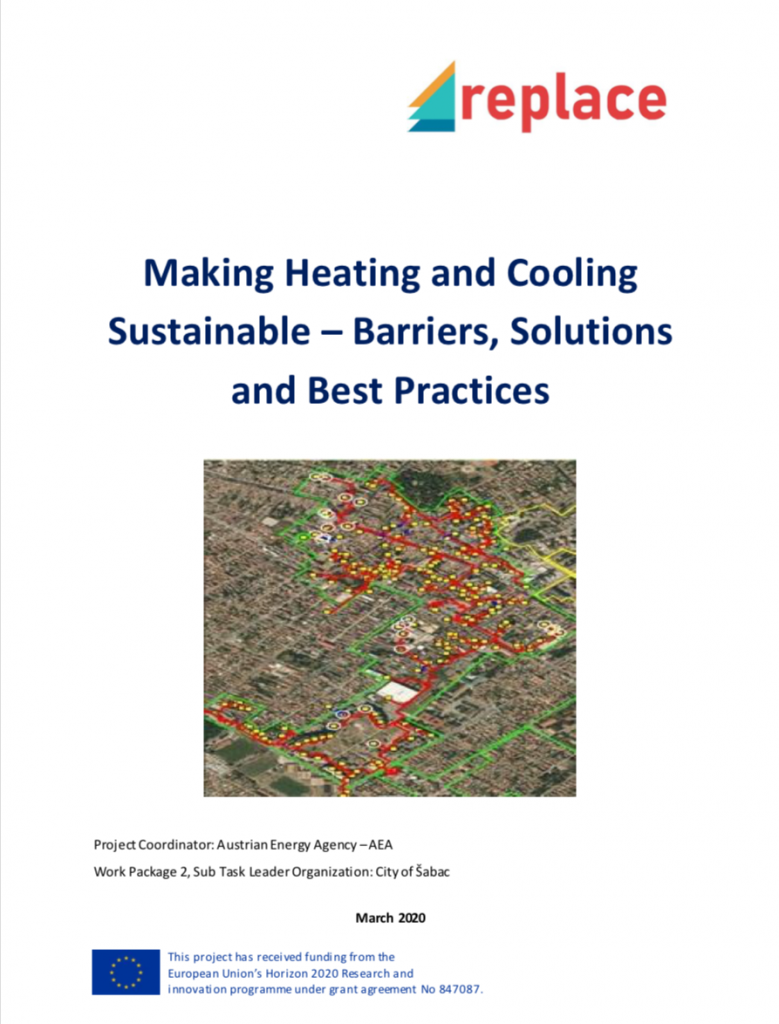
In the REPLACE project on sustainable heating and cooling, we have now published four reports. They deal with various aspects of framework conditions for the replacement of inefficient systems with climate friendly ones, and all can be downloaded from the REPLACE website:
https://replace-project.eu/?page_id=290 .
Report D2.1: Policy framework conditions assessment and outlook for sustainable heating and cooling in selected European regions
The report presents an overview of policy strategies, measures and instruments related to heating and cooling (HC) equipment. It identifies the main replacement drivers and barriers, and presents success stories of HC replacement projects/instruments in each project region, which can potentially be replicated.
Report D2.2: Making heating and cooling sustainable – barriers, solutions and best practices
The focus of the report lies on legal aspects that impede the market acceptance of renewable heating and cooling systems. The barriers, their causes and consequences are the main topics of this report.
Report D2.3: Survey on existing demand-response actions and collective actions in the heating and cooling sector and overview of legal and other requirements and challenges
Report D2.3 provides information on the status quo of Collective Actions (CAs), Renewable Energy Communities (RECs) and Citizens’ Energy Communities (CECs). Altogether, 19 demand-response actions and 28 examples for collective actions in the REPLACE target countries are shown.
Report D2.4: Exchange of experience with previous replacement campaigns and their embedding in policy programms, SWOT of facilitating policy measures
The report shows an in-depth overview of the work that has already been done on national and local level in order to replace inefficient heating and cooling systems. It includes 22 campaigns for the promotion of heating and cooling equipment that took place inside the REPLACE regions, plus five more campaigns that occurred outside the target regions.
